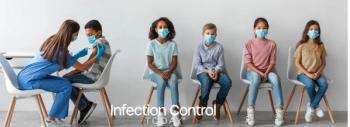
FDA Issues EUA for Remdesivir After Trio of Studies
The US Food and Drug Administration (FDA) has issued an emergency use authorization of the antiviral drug remdesivir for the treatment of patients with coronavirus 2019 (COVID-19).
The US Food and Drug Administration (FDA) has
The decision comes just days after clinicians were hit with a wave of new information from an array of trials assessing the drug in patients with COVID-19. The results indicate mixed findings for benefit, but ended on an optimistic note.
The initial data released Wednesday were shared by Gilead, and were overall positive. Then the second results, from a study in Hubei, China, cast doubt on efficacy.
By the end of the day, however, remdesivir had the praise of National Institutes of Allergy and Infectious Diseases (NIAID) director Anthony Fauci, MD, who
Sponsored by NIAID, the Adaptive COVID-19 Treatment Trial (ACTT) is a randomized, controlled trial evaluating remdesivir compared with placebo in 1063 patients from 68 sites (47 US and 21 countries in Europe and Asia). Participants include patients with advanced COVID-19 who exhibit evidence of lung involvement, including rattling sounds when breathing with a need for supplemental oxygen or abnormal chest X-rays, or illness requiring mechanical ventilation.
“Patients who received remdesivir had a 31% faster time to recovery than those who received placebo (p<0.001),” NIAID said in a press release. “Specifically, the median time to recovery was 11 days for patients treated with remdesivir compared with 15 days for those who received placebo. Results also suggested a survival benefit, with a mortality rate of 8.0% for the group receiving remdesivir versus 11.6% for the placebo group (p=0.059).”
“It’s quite good news,”
Earlier, Gilead had released
Half of the five-day patients reported a time to clinical improvement of 10 days, and a majority of patients in both treatment groups were discharged from the hospital in 14 days (P = .14)
Participants who received remdesivir within the first 10 days of symptom onset had improved outcomes relative to those treated after 10-plus days of symptoms. Pooling data across treatment arms, 62% of patients treated within 10 days were able to be discharged from the hospital, versus just 49% of patients who were treated late.
Lead investigator Aruna Subramanian, MD, clinical professor of Medicine at Stanford University, said additional data is still needed for the ongoing, 5600-patient trial-but the current results show a better understanding of optimal remdesivir treatment duration.
In assessing time to clinical improvement from baseline to 28 days post-randomization in the double-blind, placebo-controlled trial, investigators did not find an associated improvement with remdesivir (HR, 1.23; 95% CI, 0.87-1.75).
Another two-thirds (n = 102 [66%]) of remdesivir-treated patients reported adverse events, and 12% stopped treatment early, versus 64% and 5% of patients on placebo, respectively.
Though it was considered statistically insignificant, investigators did report a faster time to clinical improvement in treated patients versus placebo (HR, 1.52; 95% CI, 0.95-2.43). Among the observed limitations to the one-month trial was the initiation of remdesivir late into COVID-19 disease course among treated patients.
Investigators suggested their assessment be replicated among larger patient populations to better inform the effect of remdesivir.
“Furthermore, strategies to enhance the antiviral potency of remdesivir (eg, higher-dose regimens, combination with other antivirals, or SARS-CoV-2 neutralising antibodies) and to mitigate immunopathological host responses contributing to COVID-19 severity (eg, inhibitors of IL-6, IL-1, or TNFα) require rigorous study in patients with severe COVID-19,” they concluded.
Where does this all leave remdesivr? We asked Jason C. Gallagher, PharmD, FCCP, FIDSA, BCPS, clinical professor at Temple University College of Pharmacy and editor-in-chief of Contagion®.
“Today saw an influx of data on remdesivir, much of it conflicting. A paper in The Lancet described the results of an RCT in severely ill patients where remdesivir had no effect, though the study stopped early due to poor enrollment as COVID-19 declined in China. However, the NIAID finding in a 1000+ patient study that Remdesivir-treated patients had a 31% faster time to clinical recovery over placebo is exciting, and the trend towards a mortality benefit is promising. I want to see more of their data, particularly about outcomes in patients treated earlier vs. later in illness, and the severity of illness markers. Still, it is nice to have something positive to say about COVID-19 therapy," Gallagher said Wednesday.
This story first appeared in
Newsletter
Stay prepared and protected with Infection Control Today's newsletter, delivering essential updates, best practices, and expert insights for infection preventionists.




